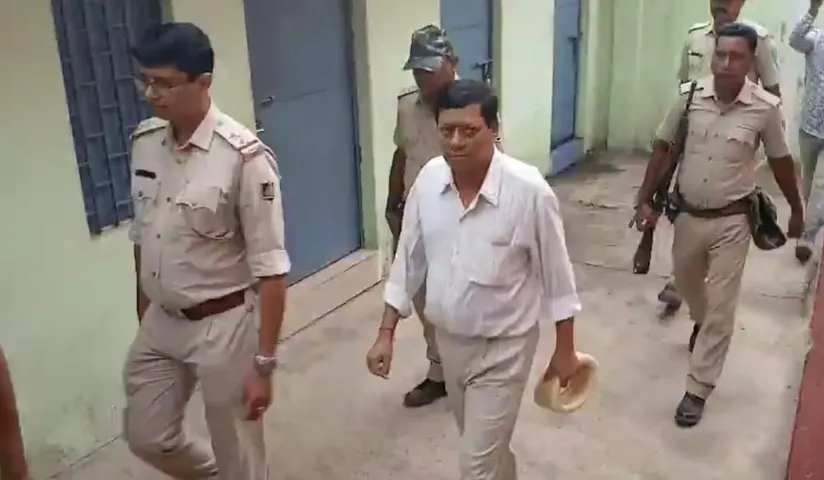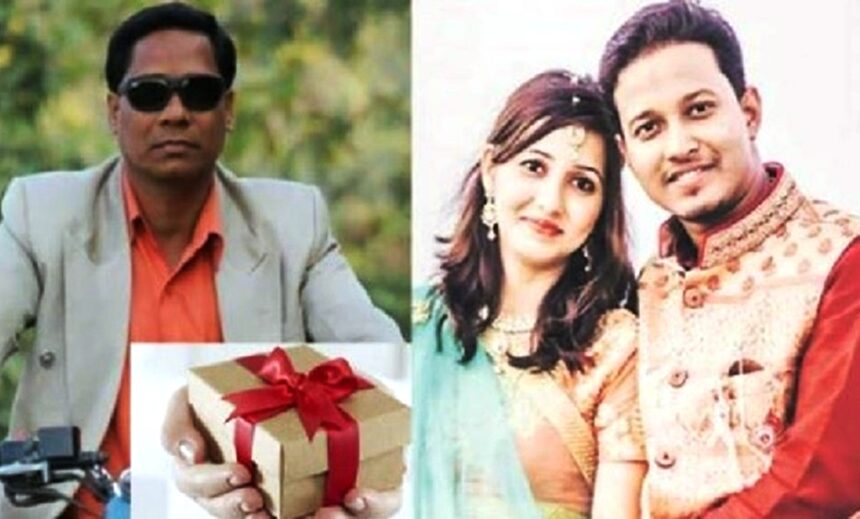NEW DELHI – A former college teacher from Odisha, eastern India, has received a life sentence for sending a parcel bomb that killed a newly married man and his great aunt in 2018.
Punjilal Meher, 56, was found guilty of first-degree murder, attempted murder, and using explosives in a case that drew national attention, often called the “wedding bomb” case. The bomb, disguised as a wedding present, was delivered to the home of Soumya Sekhar Sahu, a 26-year-old software engineer, just days after his marriage.
When Soumya and his wife Reema opened the package, it exploded. The blast killed Soumya and his 85-year-old great aunt, Jemamani Sahu. Reema, who opened the parcel, was left with serious injuries.
The court described the attack as “heinous” but decided it did not meet the standard for the death penalty, which it reserves for the most extreme cases.
The couple had been married for only five days. On the day of the incident, they were preparing lunch when a parcel arrived, addressed to Soumya. It appeared to be a wedding gift sent from Raipur, a city over 230km away in Chhattisgarh.

As Soumya pulled a thread on the package, a strong explosion rocked the kitchen. He and his great aunt died at the scene. Reema, then 22, survived with burns, a damaged eardrum, and severe trauma.
A long investigation led police to Meher, who was 49 at the time. He taught at a local college where Soumya’s mother worked and had previously served as principal there.
Police learned that Meher bore a grudge linked to professional teacher rivalry. He carefully planned the crime, posting the bomb under a false name from Raipur. He picked a courier service without cameras or parcel checks.
The parcel travelled over 650km by bus, passing through several hands before delivery. Investigators described the device as a homemade bomb, wrapped in jute thread and fitted to explode when opened.
The package listed a fake sender, SK Sharma from Raipur. For weeks, police found no strong leads.
Investigators checked thousands of phone records and questioned over 100 people. They even investigated a man who had made a threatening call after Reema’s engagement, but found no link.
Then, in April, an unsigned letter reached the local police chief. It claimed the bomb had been sent under the name “SK Sinha” instead of Sharma and mentioned “betrayal” and money as motives.

It said three men had planned the attack and were out of police reach, hinting at either a love affair or a property dispute. The letter also urged police not to trouble innocent people.
This letter shifted the inquiry. Arun Bothra, the officer then leading Odisha’s crime branch, noticed the handwriting on the parcel’s receipt matched “Sinha” more than “Sharma.” The writer seemed to know details only the sender would know.
Police now thought the letter’s author must be the culprit. “The sender knew more than the investigators. By mentioning the mistake in the name, he wanted to make the crime look like an outside job and pointed out an error to get attention,” Bothra explained in 2018.
Soumya’s mother, who teaches at the same college, recognized the writing style and phrases. She linked it to her colleague, Meher, a former principal she had replaced.
Police had earlier dismissed Meher’s workplace rivalry as normal. Now, he became their main suspect. When questioned, Meher at first offered an unlikely story about being forced to send the letter under threat.
Police say Meher later confessed. He had saved firecrackers from Diwali, removed their gunpowder to build the bomb, and posted it from Raipur. To avoid suspicion, he left his phone at home as an alibi and used a courier without CCTV. He even attended both the wedding and the funeral of his victims.














